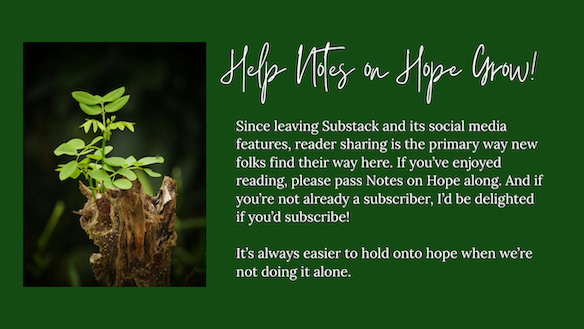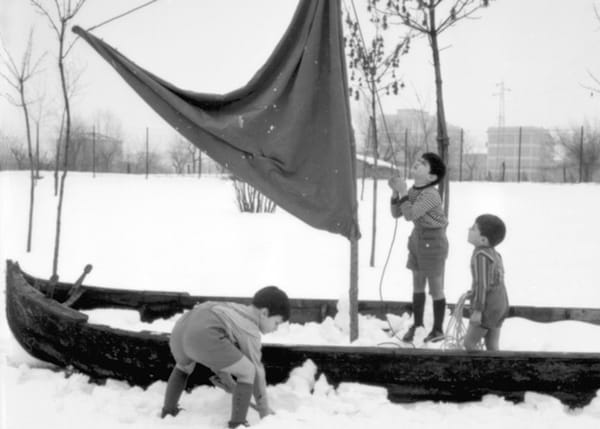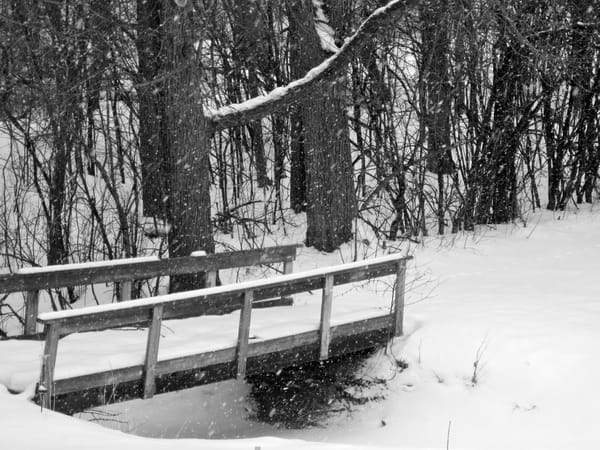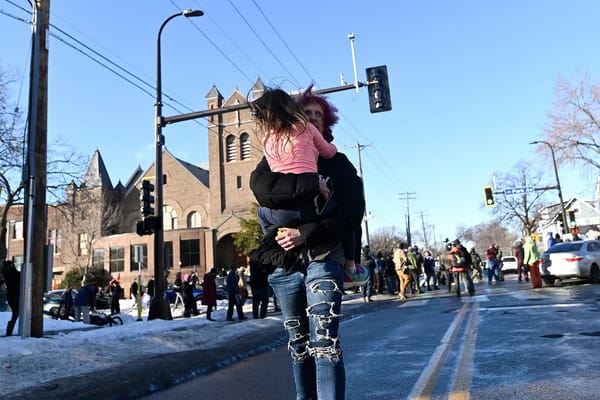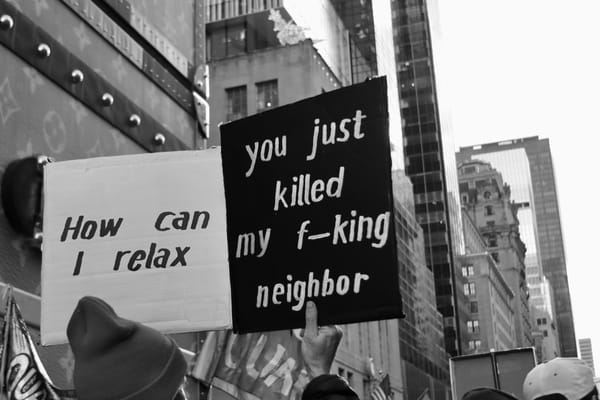Welcome to Notes on Hope
The Temptation of Protection & The Persistence of Hope
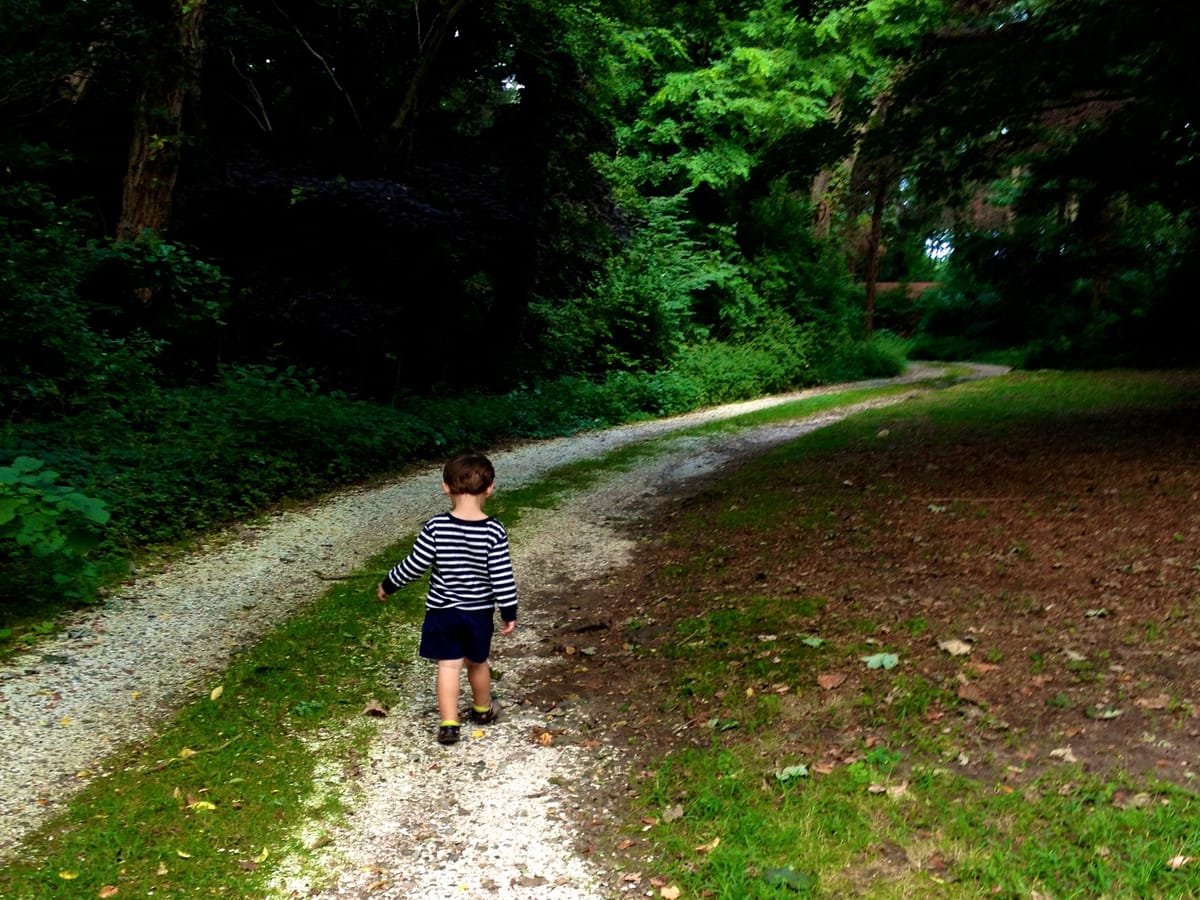
“She can’t change water into wine; instead
She fashions sweet milk out of her own blood.”
~A.E. Stallings
My son was born during a thunderstorm. Or so I was told. I have no recollection of a storm. The night sky was clear when I braced myself against a cool stone column outside the hospital entrance, and it was clear when I looked out the window, trembling and holding him to my chest, several hours later. But I was told that rain and lightning had cracked through the dark sky as he was coming into the world. This seems almost too fitting a metaphor for labor, which ruptures the body and the heart, leaving behind a stillness that glistens with transformation.
In the years since, I’ve often thought of how this also describes so much of the parenting experience. Despite all of our striving to keep the waters calm for our children and to fortify their shelter, the storms come. And we feel each broken bone and broken heart along with them, seeing them with an almost hallucinatory singularity of focus that can, at times, blur our awareness of the wider world.
We are living amidst many storms. As our newsfeeds blast crisis after crisis, it is tempting to approach the task of parenting as though we are building impenetrable domes around untouchable lives for our children, constructing beautiful fortresses in which the vibrancy of the grass on a soccer field, the handpicked selection of books on their shelves, or crisp A’s on a report card might distract them (and us) from the curvature of the dome and the turbulence of the skies beyond.
Yet the dome must inevitably crack, as lightning illuminates the world they will inherit, despite our best efforts to paper over fractures in one-way glass.
And isn’t this what we always wanted for them anyway, before we became so afraid? Isn’t this what we wanted when we first felt them kick and stretch against our own flesh or felt their tiny fingers wrap tightly around our own? Didn’t we imagine our children feeling the rain on their faces, captivated by the intensity of the sun breaking through the clouds? Didn’t we welcome them into the world to break through boundaries we couldn’t see, to heal wounds we hadn’t yet recognized, to fall in love and discover joy, to inspire and be inspired, to lead us toward something new, and to repair what we could not repair. Didn’t all our relentless love begin with a powerful, overwhelming feeling of hope?
Parenting is one of the most profound acts of hope after all. We invite children into our lives and into a world we know is broken in so many ways. To do this we must somehow imagine that it will be better for them and because of them.
The playwright, Tony Kushner says, “Hope isn’t a choice, it’s a moral obligation, a human obligation, an obligation to the cells in your body. Hope is a function of those cells.” Isn’t parenting—perhaps the most unconditional and embodied relationship we have, as we literally give our cells over to our children while we hold them and rock them to sleep—the deepest expression of this hope? Matthew Zapruder, reflecting on his first night as a father, writes, “That night the boy slept all night on his father’s chest. It was the only time in his life the father had felt his body was perfect, and not one time did he wish anything were different, or that he were elsewhere.” We bring children into the world out of a hope that is almost too visceral to name, a hope that we feel in our bones and in the soft cushions of our own flesh that seem to await their resting heads.
But doing so also makes us fragile in unimaginable ways. Our connection to our children can begin to feel so precious and so vulnerable that we find ourselves choosing to curate perfection in order to protect them (and surely to protect ourselves) from all that seems harsh. There could not be a more natural response to love than to try, desperately at times, to protect it.
And yet, our children deserve a more rugged version of love and hope, because they can’t live in a fortress forever. They won’t tolerate it. And would we really want them to?
They reach out to scale the walls we erect sooner than we expect, and they quickly see how much sadder, yes, but also infinitely more interesting, beautiful, and important life is on the other side of those walls. Don’t children deserve adults who love the world they must ultimately live in, in all its brutality and its beauty, enough to permit them its full breadth, not only the cultivated moments that we imagine to be the stuff of innocence, but all of it? Don’t they deserve adults with enough courage to walk with them through that world, rather than standing guard against it, as we are so often tempted to do?
The children’s book author, Kate DiCamillo, writes of Charlotte’s Web,
“I have tried for a long time to figure out how E.B. White did what he did, how he told the truth and made it bearable…the only answer I could come up with was love. E.B. White loved the world. And in loving the world, he told the truth about it – its sorrow, its heartbreak, its devastating beauty. He trusted his readers enough to tell them the truth, and with that truth came comfort and a feeling that we were not alone.”
Perhaps this is our most important job as parents. To reassure our children, not that the world is perfect, but that they are not alone in it, no matter how imperfect it may be, and to help them see the beauty that always exists alongside heartbreak.
The world has felt deeply imperfect over the years since my son was born in the midst of a thunderstorm. Maybe this is how all parents have felt across time, as our children’s existence opens us up to experiencing both joy and sorrow so acutely. Maybe the imperfections simply feel more overwhelming because of the way they flash across our screens and vibrate against our bodies through our hyper connected digital lives. Maybe we are, in fact, facing an adrenaline charged cacophony of crises that is unique to our time. Or maybe all of this is true, and in our weariness we have become unsustainably vigilant, on constant watch to rebuff the next piercing bullet, spike protein, or smoke filled sky.
And yet hope remains, stubborn and cellular, embodied in our children, who know they must go forward in this world we’ve brought them into. Hope runs through the wet grass ahead of us, as our hearts leap outside the confines of our skin. It returns with scraped knees for momentary comfort, only to charge off again. Our children are of us but they are also of the world, a world filled with lightning that cracks the sky open and scorches the earth, but also a world filled with fertile soil, drenched from the rain and awaiting their muddy hands to grow something new.
Wishing you persistent hope,
Alicia
